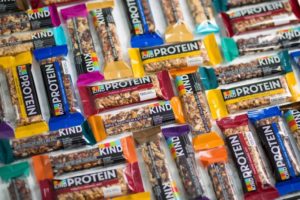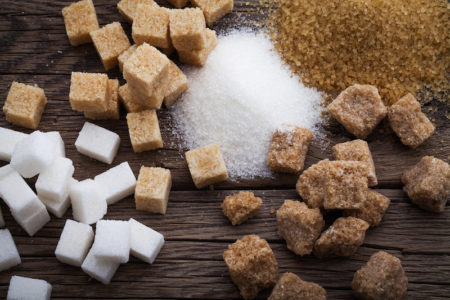‘Bite Back’ study calls for government action regulating high fat, sugar and salt products including confectionery

Group of teenagers eating snacks and talking while having fun, relaxing together, sitting on the coach at home. High quality photo
Manufacturers within the confectionery and snacks sector have come under fire in a new independent youth-led report which found a majority of products with health and nutrition claims were in fact high in either salt, saturated fat or sugar, reports Neill Barston.
The Bite Back 2030 movement, founded by chef Jamie Oliver two years ago, examining over 500 products from across the food and drink industry, including household brands including Dairy Milk bars, Percy Pig sweets, Cadbury snack bars and Snickers protein bars, which were all among items marketed with specific claims regarding their ingredients that influenced teenagers’ purchasing decisions.
Significantly, the backdrop to the studies comes at a time when the health of one in three children is at risk from having overweight or obesity, with Bite Back now calling on the UK government to introduce regulation to end the use of health and nutrition claims on products high in either (saturated) fat, salt or sugar; along with consistent portion sizing and reformulation across categories.
According to the results of its study conducted with 1,000 young people in the UK, over half the products (57%), surveyed would in fact receive a red colour-coded nutritional information label, as would 62% of the drinks.
The survey, which has been conducted with research assistance from brands organisation Livity and campaign group Action on Sugar, set out to demonstrate in its view how difficult brands make it for young people to understand exactly what it is they are consuming in terms of the true nutritional content of those products; and how healthy young people perceive them to be and why. As part of the studies, a week-long mobile diary exercise to capture what eight teens ate and drank on a daily basis.
Overall, the study found that 73% of young people felt that they were eating healthily, when in fact their daily intake of sugar, fruit, veg and fibre is below the government’s daily recommended guidance levels.
Among its key findings, eight in ten young people believe cereal bars are healthy based on what the study believes are inaccurate packaging claims which it said is ‘deeply concerning’ considering 81% of cereal bars would qualify for a red traffic light label. A further 9 out of 10 young people think yoghurts are healthy despite the fact that 35% of flavoured yoghurts would receive a red traffic light label for high sugar.
Some of the highlighted examples included Grenade protein snack bars, containing 20g of protein as a ‘health bar’ which in fact contains 10% saturates ( a third of daily allowance) and 0.3g of salt per bar. Similarly Cadbury’s Brunch Bar was promoted as ‘maintaining healthy bones,’ which in fact consists of a quarter of its contents as sugar, according to the report. In addition, the KIND bar brand, recently acquired by Mars Wrigley, marketed as having no artificial colours or additives, had 3.2g of saturates, and 1.5 teaspoons of sugar.

Demographic trends
Notably, the study’s findings revealed that young people in higher socioeconomic groups were also less likely to consume soft drinks, crisps, sweets or a savoury snack in the evening than young people in lower socioeconomic groups, although the numbers were regarded as being high.
As the study added, this disparity is reflected in the inequalities of the wider food environment: we know that the most deprived areas have five times as many fast food outlets as the least deprived areas, and that young people and adults in lower socioeconomic groups are more likely to report seeing ads for unhealthy products.
Furthermore, participants were also asked about which food and drink brands they like most. The quantitative research found that the top 5 most popular brands consumed by young people in a week are (in descending order) included confectionery group Cadbury, Coca-Cola, Kellogg’s, McDonald’s, and supermarket own-brand. Of the young people that consume Kellogg’s, Subway and Grenade, the majority of respondents think they are very or somewhat healthy — 79.7%, 73.3%, 72.4%, respectively.
In addition, the study found that food labelling is absolutely driving young people’s perception of whether a product is healthy or not. The quantitative research showed that 66% of participants believe ‘low in sugar’ or ‘no added sugar’ made a product healthy, followed by 63% for ‘low in fat’, 57% for ‘contains fruit and veg’, 55% for ‘low in salt’ and 51% for ‘high in fibre’. These findings were corroborated by our qualitative research, which included an activity on the final day where participants evaluated a series of 10 different products that had various claims on the packaging. They gave each product a score between 1 (unhealthy) and 5 (very healthy).



